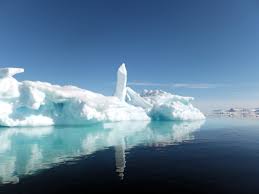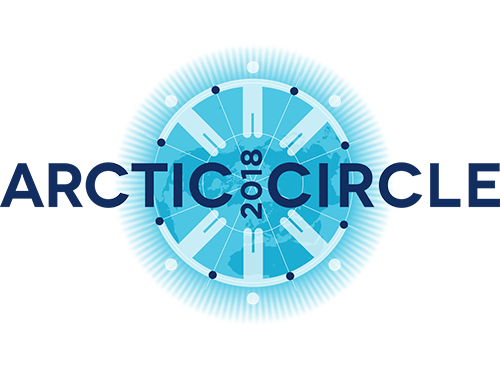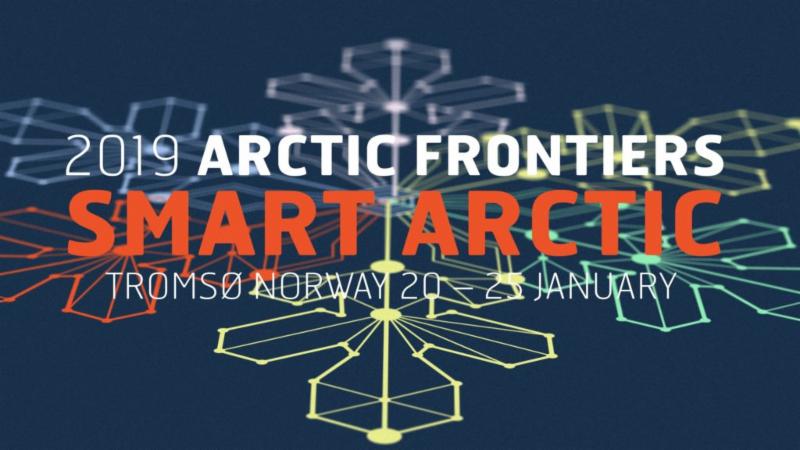|
|
|
|
|
|
|
|
September NWS Alaska Climate Outlook Briefing, September 21, 2018 (Fairbanks, Alaska USA and via webinar). The tools and techniques for making monthly and season scale climate forecasts are rapidly changing, with the potential to provide useful forecasts at the month and longer range. We will review recent climate conditions around Alaska, review some forecast tools and finish up the Climate Prediction Center's forecast for October and the early winter season. This event is part of the National Oceanic and Atmospheric Administration Science Seminar Series.
|
Media
 State Workgroup Recommends More Vitamin D for Alaska Children, Pregnant Women State Workgroup Recommends More Vitamin D for Alaska Children, Pregnant Women. Rickets is a condition that causes soft or weak bones in children. Usually, too little vitamin D is the cause. It's a rare condition in the United States. About one in 100,0000 children is hospitalized with the condition nationally, but researchers think it occurs a lot more often in Alaska. "During 2001 to 2010, Alaska Native children aged less than 10 years, living in Alaska, experienced almost double the rate of rickets associated hospitalization of the U.S. pediatric population aged less than 10 years," explained Dr. Joe McLaughlin, Chief of the Alaska Section of Epidemiology. "We don't have as much data that's been reported on non-Native children, so that's another area of research that we'd like to get more information." Alaska Public Radio
Homer Residents Experiment with a Tree from Alaska's Prehistoric Past. Could climate change take forests back in time? Kenai Peninsula residents and scientists see evidence that warmer weather is bringing back at least one tree that hasn't populated Alaska for millions of years. Across the street from Homer's Pratt Museum, there's a small tree growing on the side of the road. You'd probably miss it if it wasn't for the wooden placard proclaiming it a "metasequoia." Alaska Public Radio
 Arctic Parliamentarians Call for National Action on Circumpolar Region's Top Needs. Arctic Parliamentarians Call for National Action on Circumpolar Region's Top Needs.
A statement issued this week by Arctic parliamentarians at the end of their three-day conference, on Sept. 19, in Inari, Finland, could provide a plan for what should be done in the Arctic region. Its five pages of recommendations will hopefully guide the Canadian government in its policies and decision-making, Yukon MP Larry Bagnell told Nunatsiaq News on Thursday afternoon, shortly after his return from Inari. Bagnell and others at the meeting from Canada, including Nunavut Senator Dennis Patterson, plan to table the statement in the House of Commons and the Senate.
Nunatsiaq Online
NASA Balloon Mission Captures Electric Blue Clouds. On the cusp of our atmosphere live a thin group of seasonal electric blue clouds. Forming 50 miles above the poles in summer, these clouds are known as noctilucent clouds or polar mesospheric clouds -- PMCs. A recent NASA long-duration balloon mission observed these clouds over the course of five days at their home in the mesosphere. The resulting photos, which scientists have just begun to analyze, will help us better understand turbulence in the atmosphere, as well as in oceans, lakes and other planetary atmospheres, and may even improve weather forecasting. On July 8, 2018, NASA's PMC Turbo mission launched a giant balloon to study PMCs at a height of 50 miles above the surface. For five days, the balloon floated through the stratosphere from its launch at Esrange, Sweden, across the Arctic to Western Nunavut, Canada. Science Daily
Extra Arctic Observations Can Improve Predictability of Tropical Cyclones. Japanese scientists and their international partners have found that additional weather observations in the Arctic can help predict the track and intensity of tropical and mid-latitude cyclones more accurately, improving weather forecasting of extreme weather events. Their findings were published on August 14th in Scientific Reports. Upper-level observations such as radiosondes in the Arctic can help to forecast mid-latitude extreme events. EurekAlert!
|
|
Future Events
Scientific Exploration of the Arctic and North Pacific (SEA-NorP), September 25-27, 2018 (Mt. Hood, Oregon USA). This workshop will include discussion of hypotheses that can be tested by scientific drilling in the region, the technology necessary to achieve those goals, ideal sites for drilling based on existing data, and where additional site survey data is needed. The goal of the workshop organizers is that multiple proposals will be initiated at the workshop, both for full cruise legs and for shorter, targeted expeditions around the following themes: ocean gateways, geohazards, volatile cycling, ice histories at transition zones, biosphere and climate.
The second Arctic Biodiversity Congress is hosted by the Conservation of Arctic Flora and Fauna (CAFF), the biodiversity working group of the Arctic Council, and the Ministry of the Environment, Finland. The second Arctic Biodiversity Congress will build on the success of the first Congress, held in 2014 in Trondheim, Norway, and will bring together scientists, policymakers government officials, Indigenous representatives, Traditional Knowledge holders, industry, non-governmental organizations, and others to promote the conservation and sustainable use of Arctic biodiversity.
 Arctic Circle Assembly, October 2018 (Reykjavik, Iceland). The annual Arctic Circle Assembly is the largest annual international gathering on the Arctic, attended by more than 2000 participants from 60 countries. It is attended by heads of states and governments, ministers, members of parliaments, officials, experts, scientists, entrepreneurs, business leaders, indigenous representatives, environmentalists, students, activists and others from the growing international community of partners and participants interested in the future of the Arctic. Arctic Circle Assembly, October 2018 (Reykjavik, Iceland). The annual Arctic Circle Assembly is the largest annual international gathering on the Arctic, attended by more than 2000 participants from 60 countries. It is attended by heads of states and governments, ministers, members of parliaments, officials, experts, scientists, entrepreneurs, business leaders, indigenous representatives, environmentalists, students, activists and others from the growing international community of partners and participants interested in the future of the Arctic.
Arctic Science Forum Associated with the 2nd Arctic Science Ministerial, October 25, 2018 (Berlin, Germany and via webcast). How vulnerable and how resilient are nature and the people of the Arctic region? How well do we understand the regional and global dynamics which are driving change in the Arctic? What impact will change in the Arctic have on us? These and other questions are the focus of this two-day conference. It will take interdisciplinary research in the Arctic to gain an understanding of past and future processes - a complex and cost-intensive venture. This makes an international network of Arctic research so important for delivering better results. Cooperation in research, the exchange of data, collaborative observation and monitoring schemes - international cooperation is imperative in research on the Arctic.
Only the Science Forum, on October 25th, will be webcast. The Arctic Ministerial, on October 26th, will NOT be webcast.
Maritime & Arctic Security & Safety Conference (MASS18) "Arctic Technology" November 15-16, 2018 (Newfoundland & Labrador Canada). Now in its sixth year, MASS has gained an international reputation as a must-attend event to gain a wide perspective on challenges, opportunities and policies related to the Arctic and North Atlantic maritime environments. The aim of this Government of Canada and the Government of Newfoundland and Labrador supported international conference is to promote stakeholder collaboration, technological innovation, harsh environment research & development, and world-class education efforts that are contributing to both Maritime and Arctic issues. This two day conference will draw a diverse group of speakers and attendees representing government, military, Canadian and U.S. Coast Guard, industry, academic leaders, Northern Leaders, research and other key stakeholders. We hope you can join us to be a part of this important dialogue
American Geophysical Union Fall meeting, December 10-14, 2018 (Washington, DC USA). The AGU 2018 Fall Meeting will mark another dynamic year of discovery in Earth and space science, serve as the advent of AGU's Centennial year, and provide a special opportunity to share our science with world  leaders in Washington, D.C. As the largest Earth and space science gathering in the world, the Fall Meeting places you in the center of a global community of scientists drawn from myriad fields of study whose work protects the health and welfare of people worldwide, spurs innovation, and informs decisions that are critical to the sustainability of the Earth.
ArcticNet: Annual Scientific Meeting 2018, December 10-14, 2018 (Ottawa, ON Canada). Canada's North is experiencing unprecedented change in its sea and terrestrial ice, permafrost and ecosystems under the triple pressures of climate change, industrialization and modernization. The impacts of these pressures can be seen on food and energy security, shipping, sovereignty, northern community health and well-being, and sustainable development and resource exploitation. All these issues have brought the North to the forefront of national and international agendas. Building on the success of its previous Annual Scientific Meetings and International Arctic Change Conferences, the Arctic Network of Centers of Excellence announces the 14th ArcticNet Annual Scientific Meeting.
 is a global scientific conference on economic, societal, and environmental sustainable growth. This year's theme will be "Smart Arctic," with a pan-arctic emphasis, and an effort to build new partnerships across nations, generations and ethnic groups. Arctic Frontiers provides a forum for dialogue and communication between science, government and industry. The plenary program will have five main sessions: State of the Arctic, Blue Growth, Smart Solutions, Bridging the Gap, and Arctic business prospects. An abstract-driven science program will address Plastics in the Ocean, the Future of Governance and Handling Vulnerability in Arctic Ecosystems, State of the Arctic and A Smart Arctic Future.
 of the AAG includes over 8,500 geographers converging from the U.S., Canada, and nearly 60 other countries in a typical year including geographers, GIS specialists, environmental scientists, and other leaders for the latest in research and applications in geography, sustainability, and GIScience. of the AAG includes over 8,500 geographers converging from the U.S., Canada, and nearly 60 other countries in a typical year including geographers, GIS specialists, environmental scientists, and other leaders for the latest in research and applications in geography, sustainability, and GIScience.
|
|

  
4350 N. Fairfax Drive, Suite 510
Arlington, VA 22203, USA
External links in this publication, and on the USARC's World Wide Web site ( www.arctic.gov) do not constitute endorsement by the US Arctic Research Commission of external Web sites or the information, products or services contained therein. For other than authorized activities, the USARC does not exercise any editorial control over the information you may find at these locations. These links are provided consistent with the stated purpose of this newsletter and the USARC Web site.
|
|
|
|
|
|
|
|
|
 State Workgroup Recommends More Vitamin D for Alaska Children, Pregnant Women. Rickets is a condition that causes soft or weak bones in children. Usually, too little vitamin D is the cause. It's a rare condition in the United States. About one in 100,0000 children is hospitalized with the condition nationally, but researchers think it occurs a lot more often in Alaska. "During 2001 to 2010, Alaska Native children aged less than 10 years, living in Alaska, experienced almost double the rate of rickets associated hospitalization of the U.S. pediatric population aged less than 10 years," explained Dr. Joe McLaughlin, Chief of the Alaska Section of Epidemiology. "We don't have as much data that's been reported on non-Native children, so that's another area of research that we'd like to get more information." Alaska Public Radio
State Workgroup Recommends More Vitamin D for Alaska Children, Pregnant Women. Rickets is a condition that causes soft or weak bones in children. Usually, too little vitamin D is the cause. It's a rare condition in the United States. About one in 100,0000 children is hospitalized with the condition nationally, but researchers think it occurs a lot more often in Alaska. "During 2001 to 2010, Alaska Native children aged less than 10 years, living in Alaska, experienced almost double the rate of rickets associated hospitalization of the U.S. pediatric population aged less than 10 years," explained Dr. Joe McLaughlin, Chief of the Alaska Section of Epidemiology. "We don't have as much data that's been reported on non-Native children, so that's another area of research that we'd like to get more information." Alaska Public Radio Arctic Parliamentarians Call for National Action on Circumpolar Region's Top Needs.
Arctic Parliamentarians Call for National Action on Circumpolar Region's Top Needs. 


